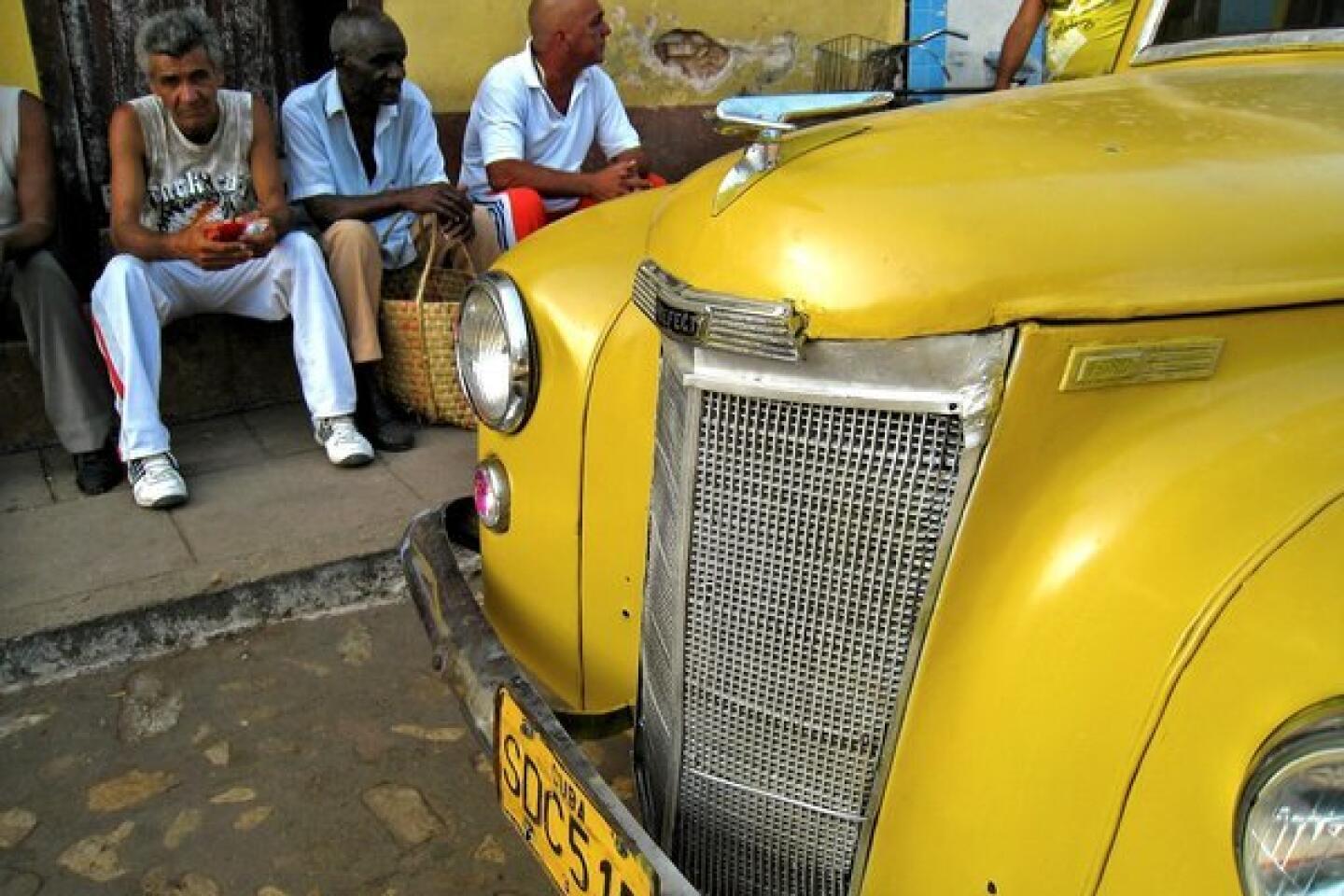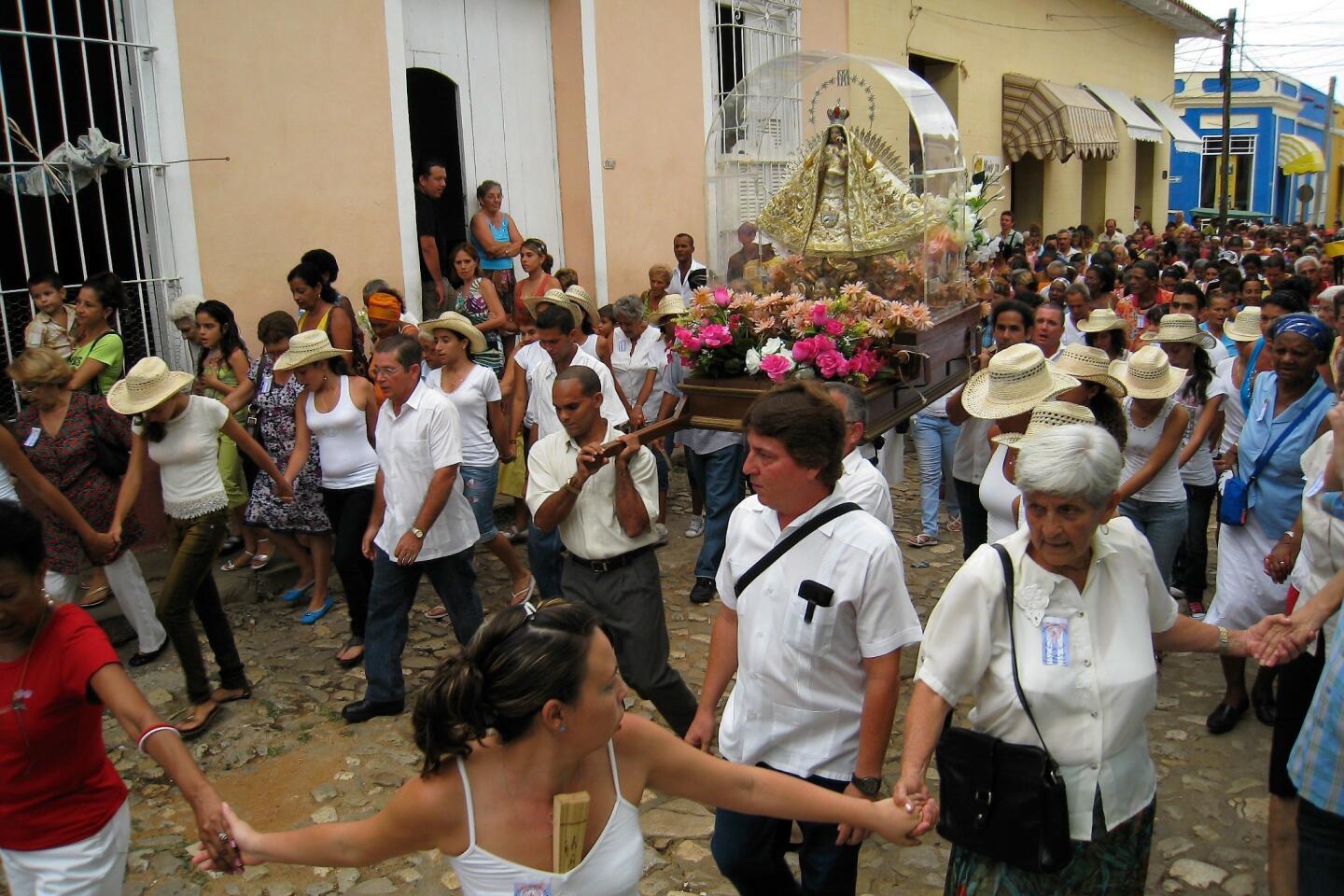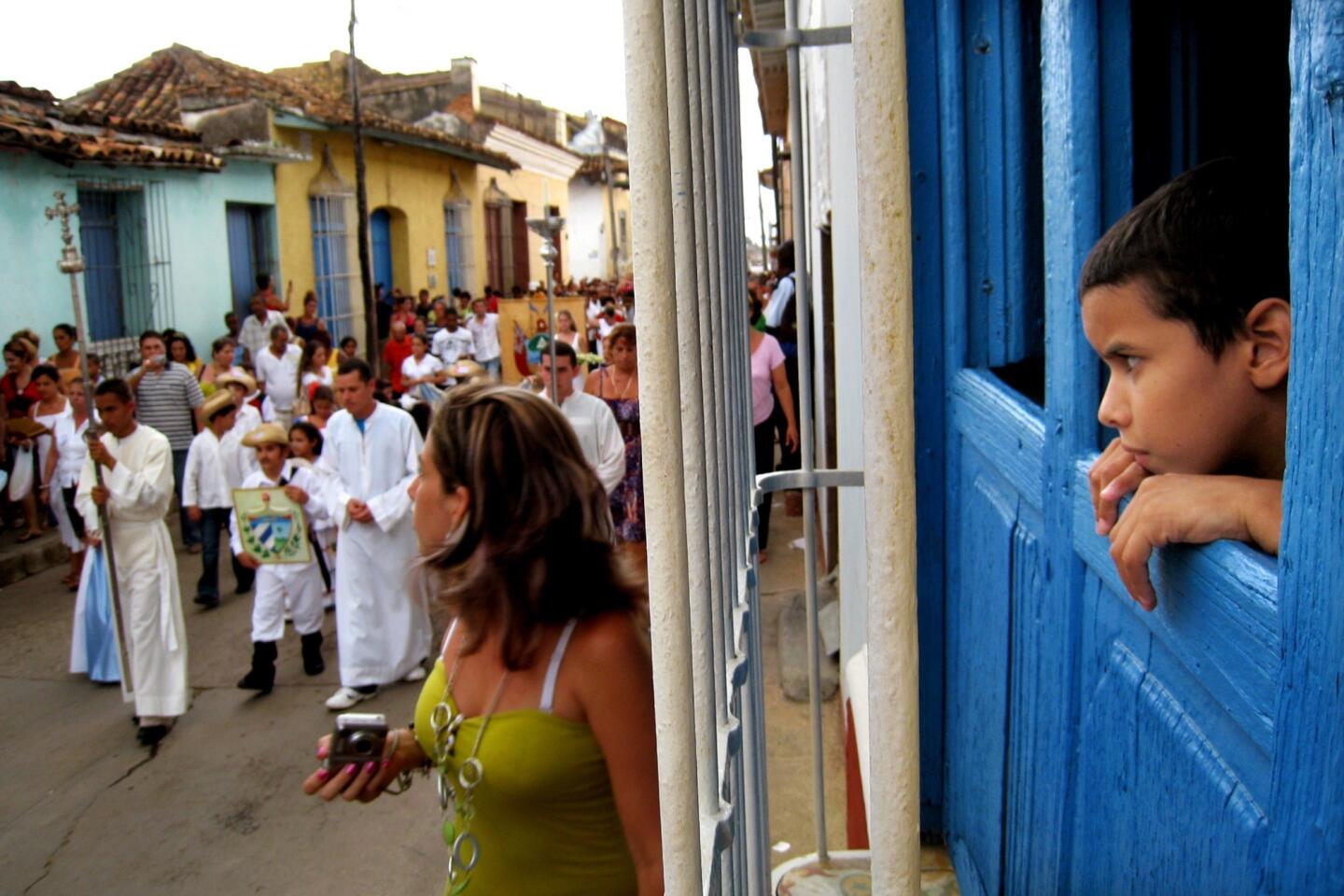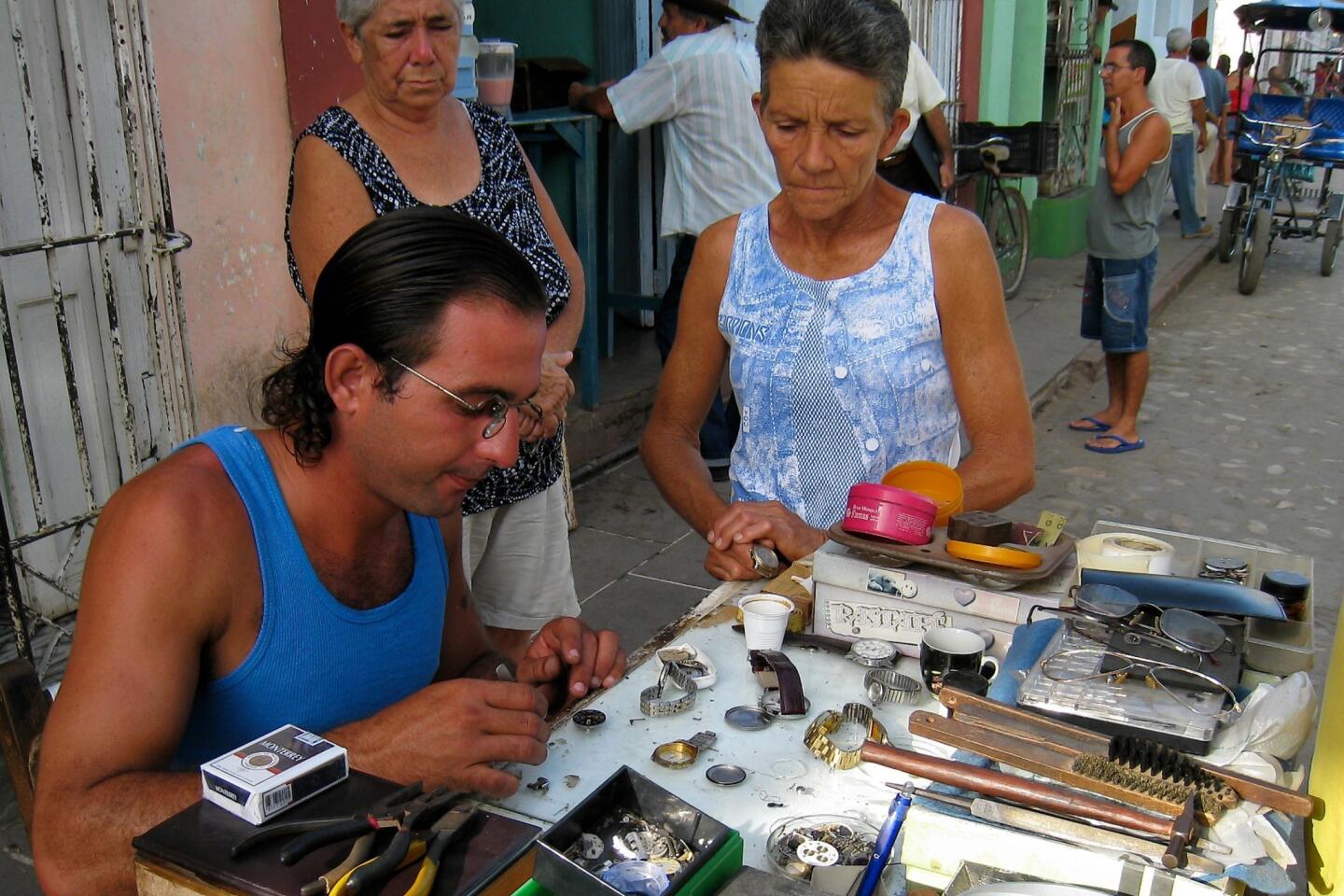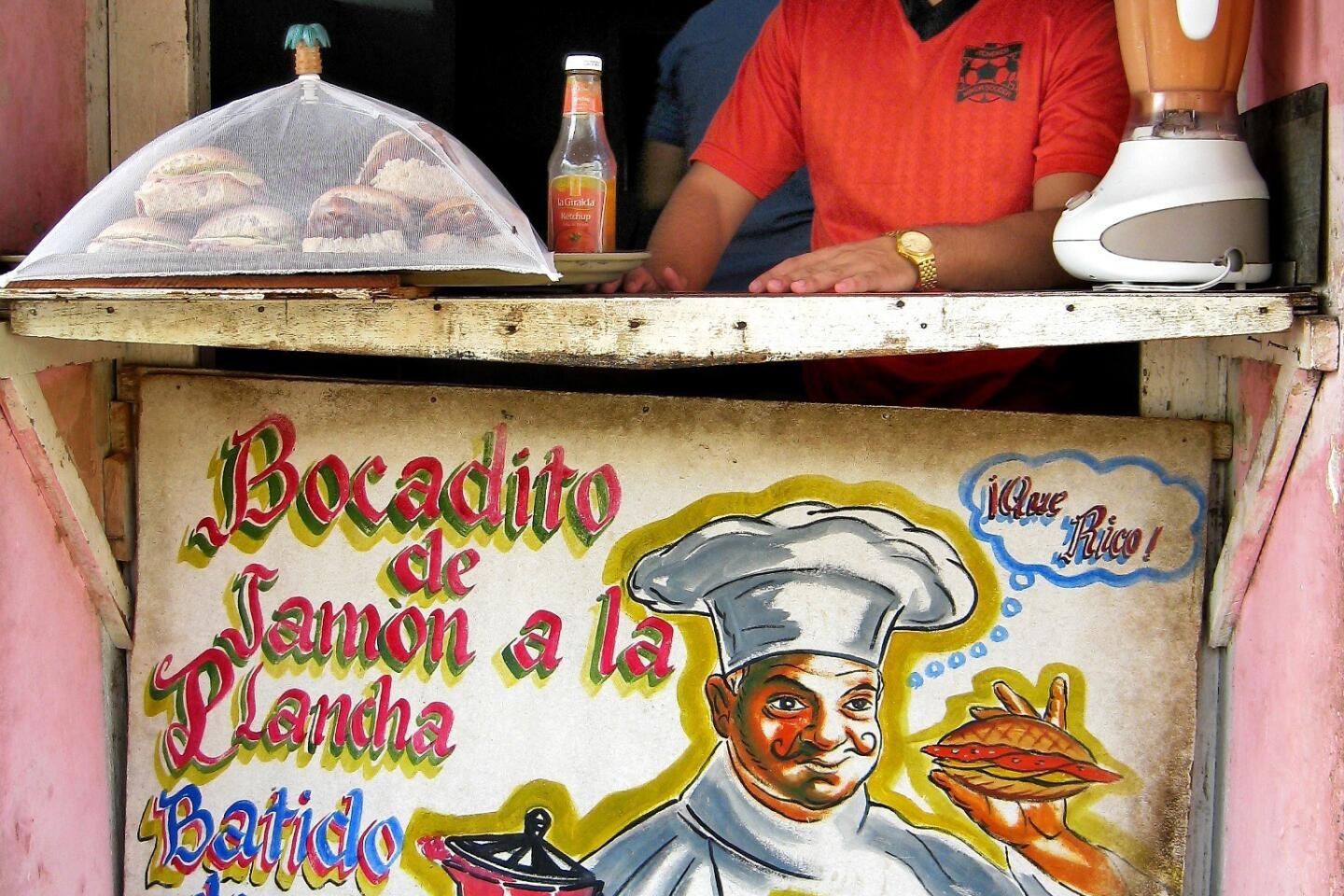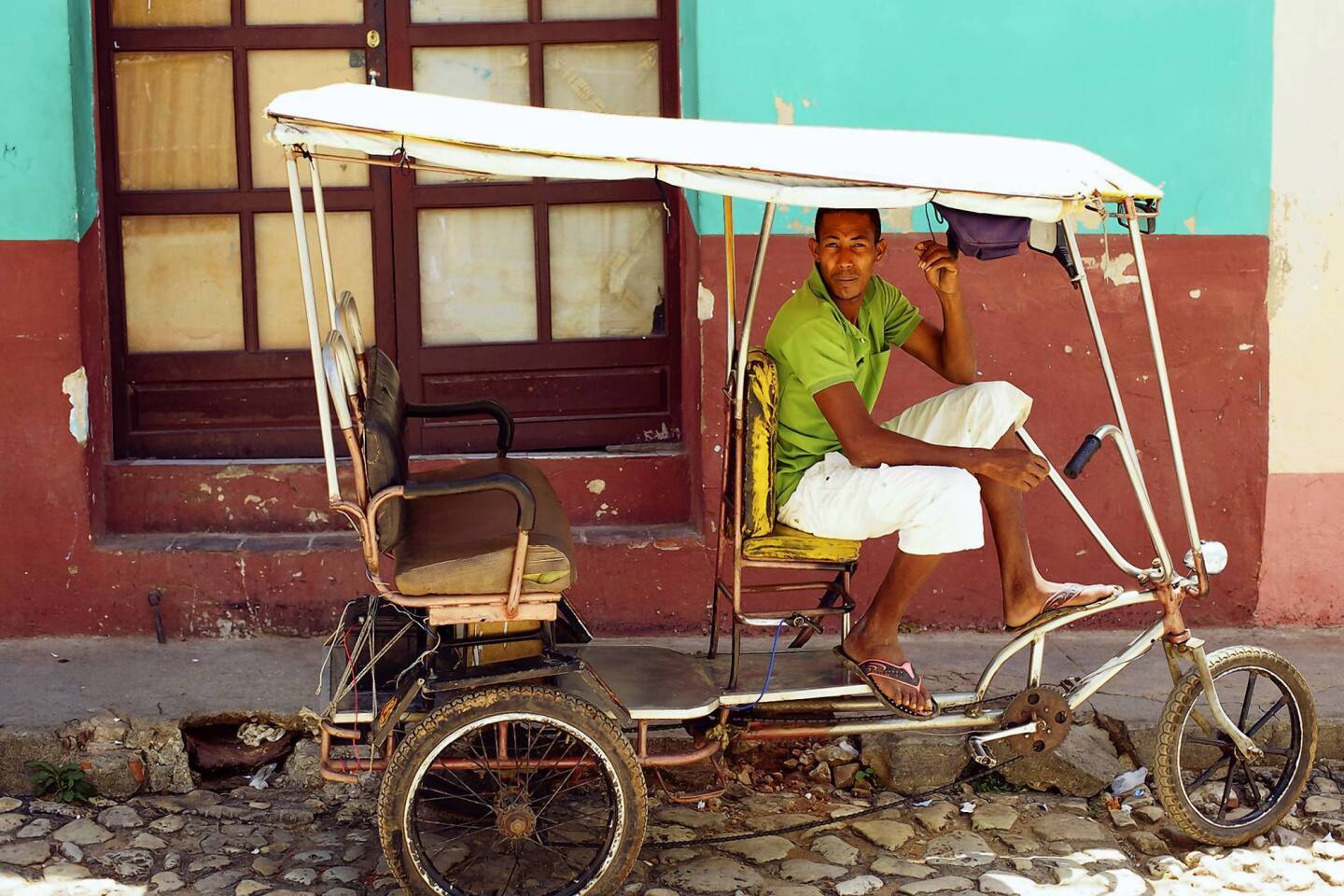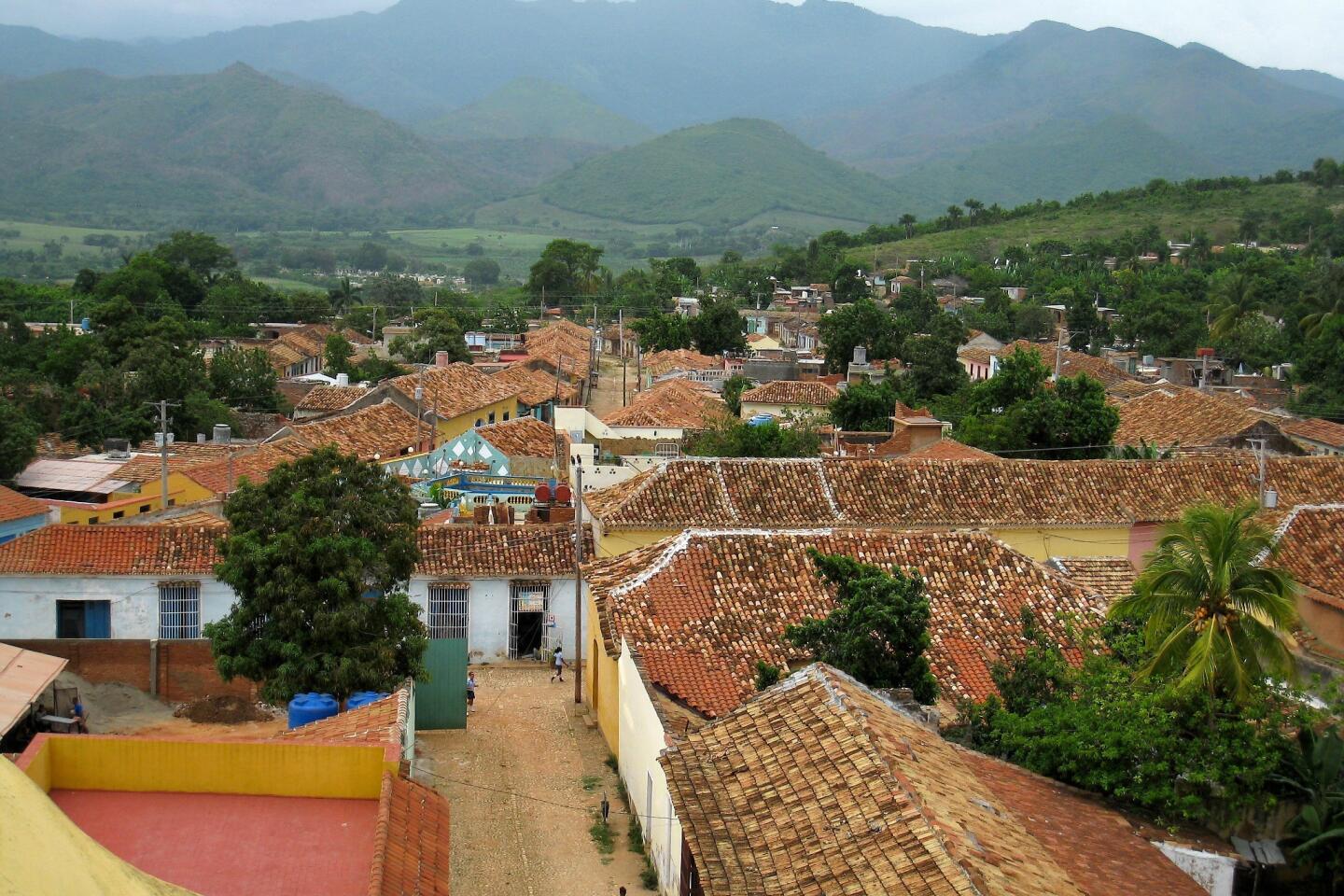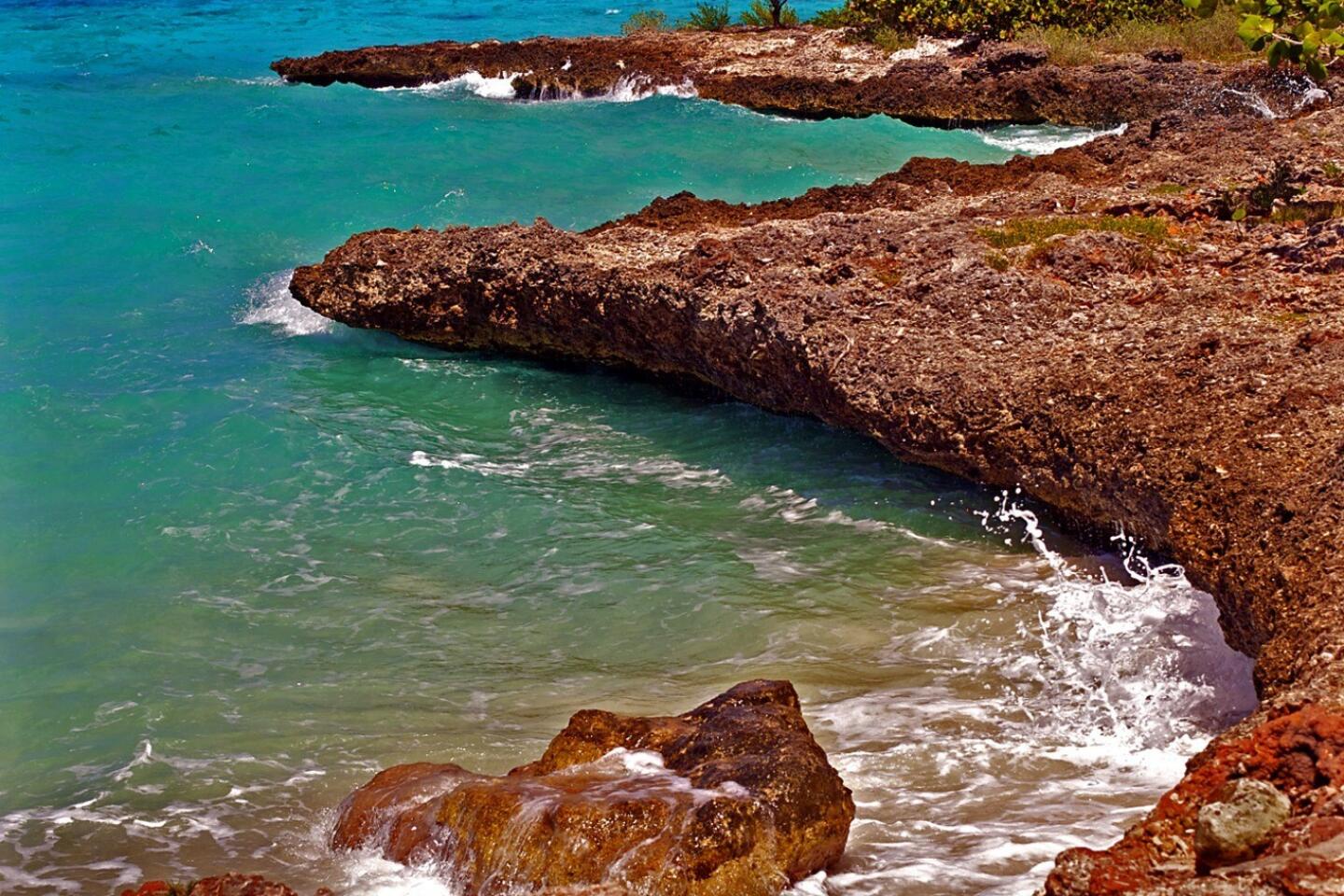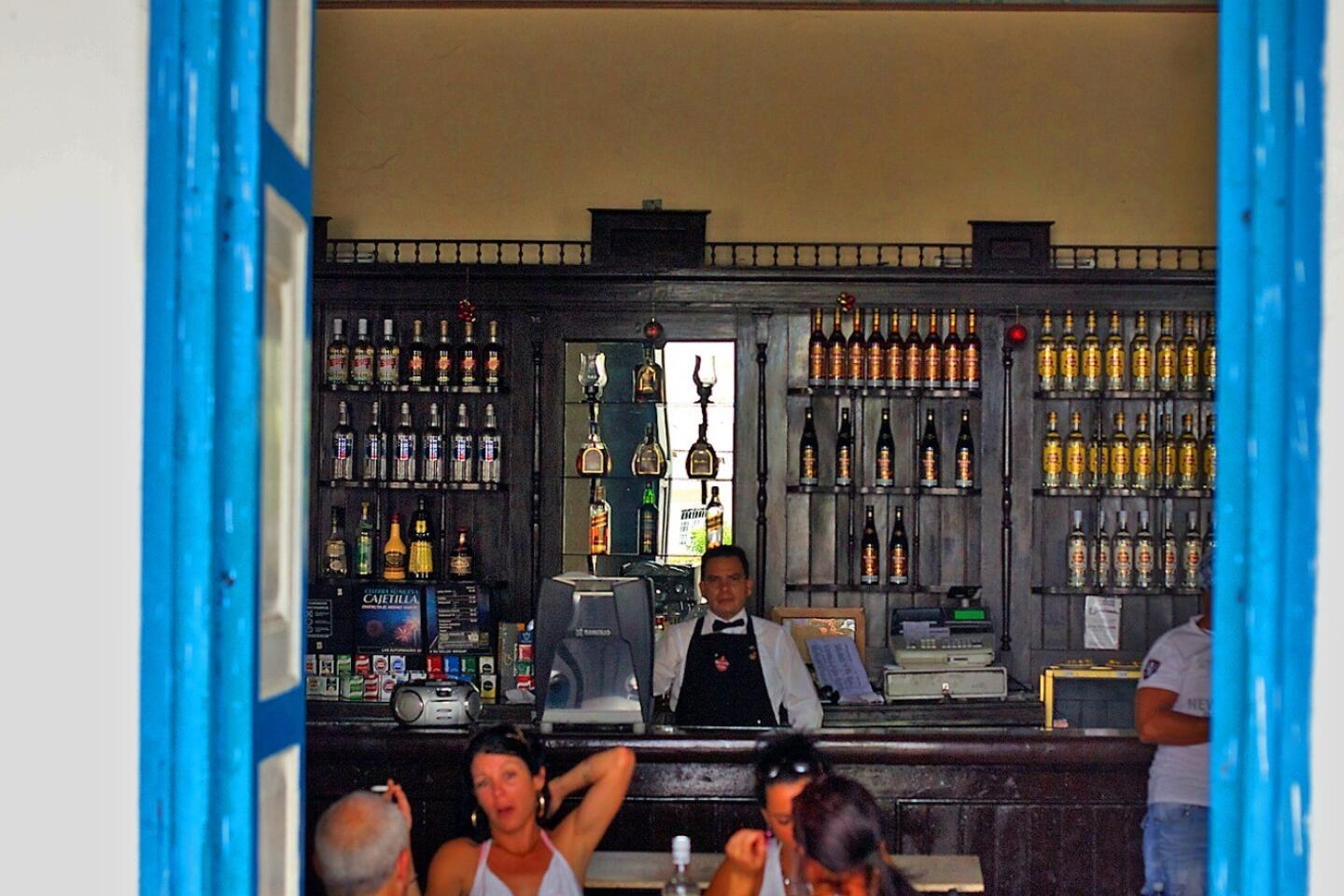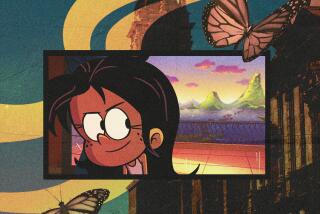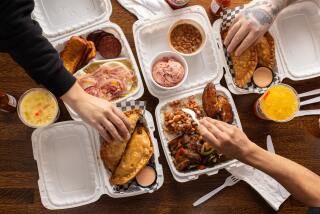Seeing a transformation in full rein in Trinidad, Cuba
TRINIDAD, Cuba — The taxi from Cienfuegos to Trinidad takes a little more than an hour. It’s a breakneck ride on a beautiful road, with densely forested hills rising above cultivated fields. Ambling horse carts veer to the side of the nearly empty highway; we pass them as if they’re standing still.
“This isn’t a taxi,” I mutter to my driver, flinching. “It’s a private jet.”
Trinidad, near Cuba’s south-central shore, is one of the country’s most beloved destinations: a beautifully preserved Spanish colonial town founded in 1514. In 1988, the town’s labyrinth of cobbled streets and plazas was declared a UNESCO World Heritage Site. It’s one of those places where every day seems reason for celebration. The restaurants and bars pulse to a Latin beat, their tables laden with strong mojitos and Bucanero beers. After nightfall, the scene outside the Casa de la Música — just a hop from the cathedral — is as lively as a Max Fleischer cartoon.
As a solo traveler in Cuba, you have two choices for lodging: at one of the reasonably charming hotels not far from each town’s main plaza, or at a casa particular, the home of a Cuban family licensed to take in tourists.
During my first week in the country as part of a U.S.-approved people-to-people delegation, I checked in at some pretty classy hotels. On my own it was casas all the way. These friendly, immersive home stays are an ideal way to meet locals, practice conversational Spanish, eat beer-battered fish and gain transformative insights into Cuba’s evolving socialist experiment.
But the equation works both ways. Sometimes, it’s the Cubans who are transformed by their visitors.
One example is Julio Muñoz, 45, Cuba’s best-known horse whisperer. Muñoz comes from a line of prominent Spanish immigrants; his two older brothers are gynecologists. Their spacious family casa sits on a sunny corner of Trinidad, adjoining the maternity clinic where Julio and his brothers were born. The house has been in his family for generations, though they lost other properties and businesses after the revolution in the 1950s.
“Why didn’t I leave Cuba?” Muñoz says with a shrug. “I am a survivor. And I’m a person who loves my people and loves my country. I find ways to be happy. With my horses, and with my friends, I am incredibly happy.”
After a quick, thick coffee at the casa, we hire a cab and bump along the cobblestone roads leading to Finca del Chino, the ranch where his horses roam free. During the drive, Muñoz describes the series of events that changed his life.
“Since I was a kid,” he says, “I’ve been interested in photography. But good cameras were hard to get. Also, Cuba didn’t have a tradition of scenic photography. Normally, Cubans take pictures of weddings, birthdays, quinceañeras, things like that. But no fine-art photography.”
In mid-1994, as tourism restrictions relaxed, the intense, wiry Muñoz turned his home into a casa particular. Thanks to his knowledge of Trinidad and his command of English, the Casa Colonial Muñoz quickly became popular.
“Journalists, filmmakers — all were greedy to come to Cuba to make films, to write articles. And Trinidad was one of their favorite places. I was hired as a ‘fixer’ to scout locations, translate, find people. That’s when I learned there was another way to take pictures.”
Inspired and encouraged by the photographers who stayed at his casa (one of them even left him a block of color slide film), Muñoz expanded his horizons. He began to explore Trinidad with new eyes and a fresh appreciation for the city’s architecture, culture and landscape.
“I wanted to record everything.” Muñoz rolls down the taxi’s window, letting in the heat. “And one of the most beautiful parts of Trinidad is the countryside. But the only way to reach it is by horse. And when I started riding horses to reach the countryside — well, that’s when I fell in love with horses.
“It was like a loop of events. Because I rent rooms in my house, I am led to photography. Because of photography, I am led to horses — and through my love of horses, to the horse-whispering techniques.”
We arrive at Finca del Chino, named for the rugged owner, and accept a cup of strong coffee and a wedge of farm cheese from Chino’s wife.
There are many styles of “natural horsemanship,” Muñoz explains, sipping his demitasse, “but the core is the same. Never treat badly the horse. Never give pain to the horse. I don’t use spurs; I don’t use a whip.
“And, most important, use the horse’s psychology. How do they live in the natural world? How do they communicate between each other? When you learn to use this kind of body language, you can do amazing things.”
One of Julio’s first horses, Diana, was born and raised in his Trinidad casa. “She was living in the house like a dog and walking throughout the house — I have videos of all that.” Diana died after an injury, but Julio has immortalized her by starting a foundation, the Diana Project, that advocates for equine health and well being.
Muñoz leads me past napping cats, rusting farm implements and muddied boots. Spurs hang on a wall, proof that other ranchers at this finca train their horses in the traditional way, through pain and intimidation. This clearly upsets Muñoz. But he continues to teach by example, hoping his methods will be absorbed.
“It’s very difficult to change the way Cubans treat horses,” he says. “They use them like a disposable tool. They don’t understand that with natural horsemanship, the horse is happy. It’s willing and glad to do things. There is a joy. There is a connection.”
Muñoz’s current love is a 4-year-old filly named Luna de Miel — Honeymoon. We climb through a barbed-wire gate, and he disappears over a small rise. He returns a moment later astride the brown quarter horse. The affection between man and beast is evident. Muñoz dismounts and shows me exactly how trusting she has become. He tickles her ears, picks her nose, even takes hold of her thick, wet tongue.
Luna endures the routine patiently, then snuggles gamely up to me (I don’t go for her tongue) while he snaps a photo. It’s a cute shot, but it doesn’t compare with the pictures of him with his horse. Together, they’re practically a centaur.
“It really is like that,” Muñoz says with a laugh when I remark on the telepathy between them. “When I drink rum, my horse gets drunk.”
There is another side to Muñoz as well. Like many Cubans, he’s a devout Catholic whose observances were long suppressed by the socialist regime. During my visit, though, thanks to policy relaxations by President Raúl Castro (Fidel’s younger brother), Trinidad will hold a much-anticipated celebration. A statue of Cuba’s patron saint — La Virgen de la Caridad del Cobre, or Our Lady of Charity — will be carried through the rustic streets in an emotional procession.
Muñoz has arranged the equine aspects of the event. “I am the boss of the horses,” he proclaims proudly. His gifted 17-year-old daughter, Maria Carmen, will sing to the crowd.
Such observances are a sign of relaxation concurrent with Cuba’s growth in tourism. But unlike the recent economic changes, this procession confirms a conviction that people here have long kept to themselves.
“After the revolution, the government tried to erase Cuban history,” Muñoz says with a slight smile. “But they couldn’t do it.”
The next afternoon, as Maria Carmen’s powerful voice fills the cathedral’s plaza, I sit on a doorstep and devour yet another cubano of salty ham and gooey queso. Muñoz soon appears at the head of a noble parade, Luna de Miel his faithful mount. He nods to me, filled with pride as he guides Honeymoon through the age-old pageant.
From a visitor’s vantage, it’s hard to know if religious freedom is making a comeback in Cuba, or if this is a one-time easing of government restrictions. The single indisputable thing I’ve learned during my visit is that the country is indeed changing at a pace that alternately plods and gallops.
More to Read
Sign up for The Wild
We’ll help you find the best places to hike, bike and run, as well as the perfect silent spots for meditation and yoga.
You may occasionally receive promotional content from the Los Angeles Times.
